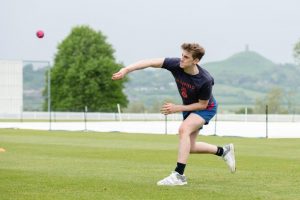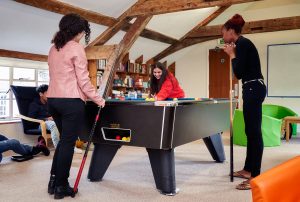
- This event has passed.
Supporting and understanding the digital generation

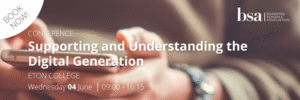
- Date: June 4, 2025
- Time: 09:00 – 16:15
- Cost: BSA Full Member – £150, Non-member – £225
- Venue: Eton College
Sponsored by:
Conference outline:
The digital generation are defined as “individuals who have grown up in an era of widespread access to digital technologies like the internet, smartphones, and social media.”
This is an in-person conference hosted at Eton College, bringing together educators, pastoral leaders, and safeguarding professionals to explore the complex realities of young people’s digital lives within school environments. The conference will feature expert-led sessions on pressing topics such as online safety, the rise of radical online ideologies like the manosphere, and the ongoing debate around the role of smartphones in childhood—spotlighting the Smartphone-Free Childhood movement. Attendees will also have the chance to take part in interactive breakout sessions designed to foster meaningful dialogue and practical strategies for managing digital challenges in school communities.
Training topics include:
• Identifying and responding to digital safeguarding risks
• Managing screen time and device use in school settings
• Communicating effectively with students and parents about online behaviour
Learning outcomes:
• Greater confidence in identifying online risks and responding appropriately
• Enhanced understanding of the manosphere and how it influences young people
• Practical strategies for managing devices in schools
• Tools for creating a balanced, safe digital environment for students
Whether you’re a school leader, houseparent, or safeguarding lead, this conference offers timely, practical insights to help shape your school’s digital approach.
Programme:
09:00 – 09:30
Registration
09:30 – 09:45
Welcome & Opening Remarks
- Introduction to the day
- Framing the theme: “Digital Realities in Boarding Life”
- Speaker: David Walker, Executive Director, Boarding & Education and Director, BSA/TIOB
- Speaker: Mike Grenier, Deputy Head Pastoral, Eton College
09:45 – 10:30
Keynote Session: Online Safety in a Connected World
- Navigating digital risks and responsibilities
- Safeguarding in an ever-evolving online landscape
10:30 – 10:35
Break
10:35 – 11:20
Debate: Devices & the Digital Childhood
- “Do smartphones belong in young people’s lives?”
- Including insights from the Phone-Free Childhood initiative
- Speaker: Will Orr-Ewing, Director, Keystone Tutors
11:20 – 11:45
Break
11:45 – 12:30
Radical Influences: Understanding the Manosphere
- Exploring the rise of radical online ideologies
- Impacts on identity, belonging, and gender perception
- Speaker: Dr Jwana Aziz, Research Fellow, Applied Health Sciences, University of Birmingham
12:30 – 13:15
Lunch Break
13:30 – 14:00
Mental Health- What research does and doesn’t tell you
-
- Speaker: Aidan Peters, School Counsellor, Eton College
14:00 – 15:00
Addressing the ‘why’ rather than the ‘what’ of sexting in the UK
-
- Speaker: Dr Jon Needham, Director of Safeguarding, Oasis Community Learning
15:00 – 15:10
Break
15:10 – 15:35
Strengthening the Home-School Partnership in a Digital World
-
- Speaker: Will McNeil, Sales Manager, EduLink One
15:35 – 16:20
Young People’s Experiences of their Digital World at Boarding School
In this powerful and candid session, a diverse panel of boarding pupils will share their experiences, challenges, and aspirations related to life in digital boarding environments. Through guided discussion and live audience Q&A, the session aims to centre pupil voice in shaping the future of pastoral care, online learning, and digital community building in boarding schools.
- Chair: Alice Vicary-Stott, Director of Safeguarding, Eton College
16:20 – 16:30
Closing Reflections & Next Steps
- Group insights
- Future planning and resources
Final Q&A
Speakers:

Jwana Aziz, Research Fellow, Applied Health Sciences, University of Birmingham

Will Orr-Ewing, Smartphone Free Childhood
Will is the founder of Keystone Tutors and Arka Learning, and has been a trustee of schools across the entire sector. Since it launched in February 2024, he has been volunteering for Smartphone Free Childhood – a cause close to his heart.
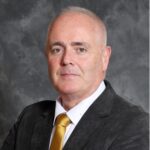 Dr Jon Needham PhD, National Director of Safeguarding & Well-being, Oasis Trust
Dr Jon Needham PhD, National Director of Safeguarding & Well-being, Oasis Trust
Jon originally trained as a nurse specialising in adolescents with life limiting illness before moving to become an advisor to a strategic health authority and a health commissioner. He worked briefly as a specialist advisor on two World Health Organization projects before becoming the lead for early help within a large unitary authority.
He worked as an education safeguarding advisor supporting 530 schools and for the past 6 years has worked as the National Director of Safeguarding & Mental Health in a multi-academy trust. He holds a PhD in Education (Safeguarding) from Liverpool Hope University. Jon is co-chair of the Pan-London Education Safeguarding Board, founder member of the National Association of Academy Safeguarding Advisors (NAASA) and co-chairs the Coalition of Mental health provision between the State and Independent Sector. He also acts as a mentor to five young men starting in business ensuring that they develop to their full potential. In his spare time, he is a voluntary youth worker. When (if) he ever relaxes he is a keen fan of Korean dramas (though must use subtitles).
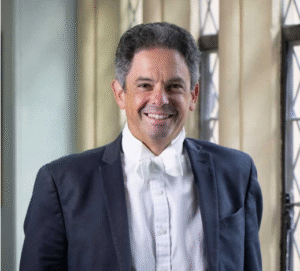 Mike Grenier, Deputy Head Pastoral, Eton College
Mike Grenier, Deputy Head Pastoral, Eton College
Mike oversees all our pastoral care for boys and so works closely with the Stephenson Centre for Wellbeing, the Health Centre, the Director of Safeguarding, the Director of SPHERE, the Director of Inclusion Education, the Head of Access, the Heads of Block as well as House Masters and Dames.
Mike studied English Literature at undergraduate level at the University of Oxford and has a PGDE from Edge Hill University. He was a House Master from 2004-17 in Wotton House and from 2019-21 in Evans’s House. His wife, Emma, is a physiotherapist, and they have a daughter and a son. He is currently a governor at two prep schools.
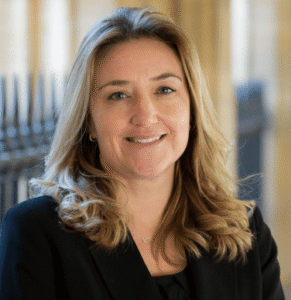 Alice Vicary-Stott, Director of Safeguarding, Eton College
Alice Vicary-Stott, Director of Safeguarding, Eton College
Alice takes specific responsibility for all safeguarding and child protection matters in the school.
She exercises her responsibilities in conjunction with four Deputy DSLs, who are currently the Deputy Head (Pastoral), the Safeguarding Co-Ordinator, the Head of D Block and the Director of SPHERE.
Alice has a degree in Social Work, and has worked in Children’s Social Care throughout her career in a variety of Social Care departments. Before joining Eton, Alice was the Local Authority Designated Officer (LADO) for Kingston, Richmond, Windsor and Maidenhead. In this role she was in charge of child protection services working closely with both maintained and independent schools, the police and other statutory agencies. Alice was also chair of the National LADO Network up until she took up her post at Eton.
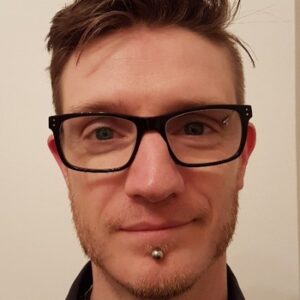 Aidan Peters, School Counsellor, Eton College
Aidan Peters, School Counsellor, Eton College
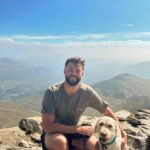 Will McNeil, Sales Manager, Overnet Data
Will McNeil, Sales Manager, Overnet Data
Will McNeil is a seasoned EdTech professional with a decade of experience specialising in tools that foster communication, engagement, and safeguarding within schools. Currently Head of Sales at Overnet Data, Will has played a pivotal role in integrating cutting-edge platforms that bridge the gap between schools and families, particularly in complex environments like international and boarding schools. With a background in launching and scaling innovative MIS and communication systems globally, Will has worked closely with educational groups across the world to deliver solutions that simplify digital engagement and enhance pastoral care.
At this event, Will will draw from his technology background and understanding of parental engagement challenges in boarding contexts to present a session that explores how unified digital platforms can transform the way schools communicate with families, build trust, and improve student wellbeing.
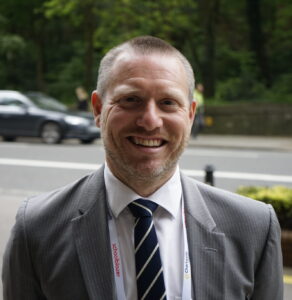
David Walker, Executive Director, Boarding & Education and Director, BSA/TIOB
David is the BSA Director and joined the BSA group in August 2023. He has over 20 years’ experience in boarding schools and has worked in a range of schools in the UK and Africa, alongside being a prep school governor and a trustee of a MAT. Before taking up his post at the BSA, David was Deputy Head Pastoral at a large co-ed independent school in the South-East.


